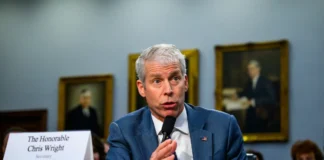
A federal judge on Friday dismissed a lawsuit by 16 Democratic-led states seeking to reverse the Trump administration’s cancellation of hundreds of millions of dollars in diversity-focused science and research grants.
The states had argued that the National Science Foundation (NSF) unlawfully terminated funding for programs aimed at increasing participation by women, minorities, and other underrepresented groups in science, technology, engineering, and mathematics (STEM) fields.
U.S. District Judge John Cronan, a Trump appointee based in Manhattan, ruled that his court lacked jurisdiction to hear the case, saying such claims must be brought before the Court of Federal Claims, which handles monetary disputes against the federal government.
In his decision, Cronan also rejected the states’ argument that the NSF’s new grant policy — which discourages prioritizing “subgroups of people” and emphasizes benefits for “all Americans everywhere”, was inconsistent with the agency’s statutory mandate.
Although the NSF began canceling diversity-related grants in April, the judge found no evidence that the agency had completely stopped supporting such programs. “This evidence powerfully undermines Plaintiffs’ argument that the Priority Directive renders this class of projects categorically ineligible for funding,” Cronan wrote.
The lawsuit, filed in May and led by New York Attorney General Letitia James, had accused the Trump administration of overstepping its authority by eliminating programs mandated by Congress. The NSF has not publicly commented on the decision, and James’ office said it is reviewing legal options.
The funding cuts align with President Trump’s broader campaign to eliminate diversity, equity, and inclusion (DEI) initiatives from federal agencies and public institutions, a cornerstone of his second-term policy agenda.
While the ruling represents a setback for state efforts to preserve targeted support for underrepresented groups in STEM, legal observers note that further challenges could still be pursued in the appropriate federal claims court.
Written By Rodney Mbua


















